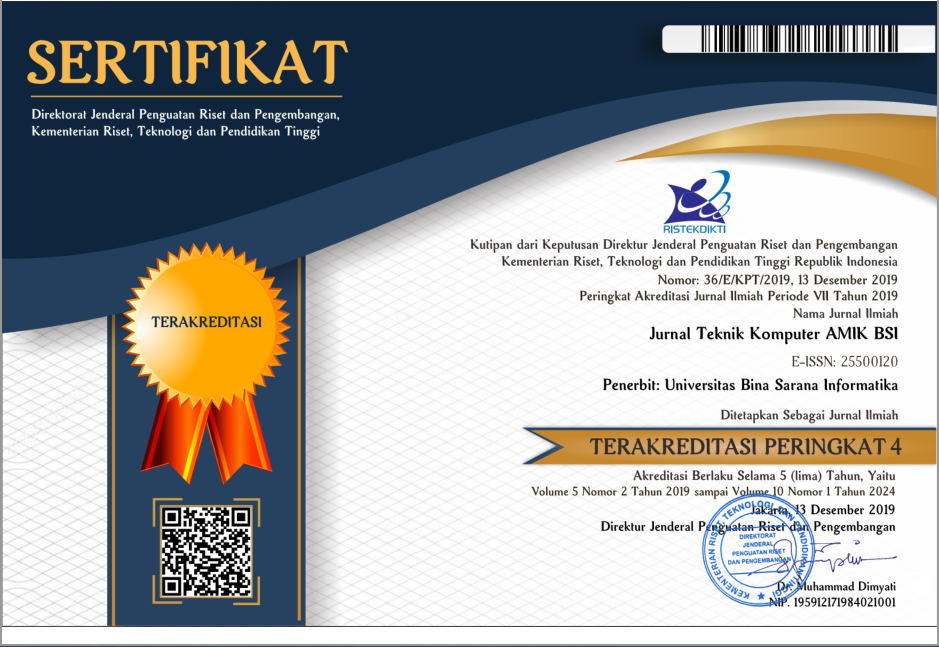ANALISA TINGKAT KEPUASAN PELANGGAN DENGAN METODE FUZZY SERVQUAL
Abstract
Increasing number of businesses in the service of making advertising boards have a negative impact on turnover Advertising revenues, issues regarding the service, also often complained by consumers. In order to attempt to improve the quality of customer service we perform a study of the level of customer satisfaction. This study uses Fuzzy Servqual. The data analysis method used is the Gap Analysis Servqual four dimension is the difference between the expected service to the service received by the customer. And Fuzzy Analysis to determine the gap with defuzzification process. After processing the data in each dimension, it can be seen that the whole dimension has a positive value unless the dimension Empathy is the gap value of -0.426. If viewed from all four dimensions, quality service has met the customer satisfaction level expected by customers.
Keyword- Service Quality, Fuzzy Servqual, Perceptions and Expectations
Full Text:
PDFReferences
Harto Budi, 2015, “Analisis Tingkat Kepuasan Pelanggan Dengan Pendekatan Fuzzy Servqual Dalam Upaya Peningkatan Kualitas Pelayanan (Studi Kasus Di
Bengkel Resmi Bajaj Padang)” Jurnal Teknoif Vol. 3 No. 1 April 2015 ISSN 2338-2724 diambil dari: Aisyati, Azizah, Taufiq Rochman, dan Hafid Rahmadi. 2007. Analisa Kualitas Pelayanan Rumah sakit Umum Daerah (RSUD) Wonogiri Menggunakan Metode Fuzzy-Servqual
Kusumadewi, Sri; Purnomo Hari. 2013. Aplikasi Logika Fuzzy untuk Pendukung Keputusan. Yogyakarta: Graha Ilmu
Maolani, Rukaesih A, dan Ucu Cahyana. 2015. Metodelogi Penelitian Pendidikan. Jakarta: Raja Grafindo Persada.
Pasaribuan, Nami Fitricia. 2013. Pengukuran Kepuasan Pelanggan Menggunakan Servqual di Spinelli Coffee GandariaJakarta: Binus Business Review volume 4 No. 1 Mei 2013: 453-460
Priyatno, Duwi. 2009. 5 Jam Belajar Olah Data dengan SPSS 17. Yogyakarta: C.V. Andi Offset.
Sugiyono, 2009. Metode penelitian kualitatif kuantitatif. Jakarta: Garha ilmu.
Uyanto, Stanislaus S. 2009. Pedoman Analisis Data dengan SPSS. Jakarta: Graha Ilmu.
Widodo, Prabowo Pudjo dan Rahmadya Trias Handayanto. 2012. Penerapan Soft Computing dengan Matlab. Bandung: Rekayasa Sains.
DOI: https://doi.org/10.31294/jtk.v3i1.1341
Copyright (c) 1969 Erma Delima Sikumbang

This work is licensed under a Creative Commons Attribution-ShareAlike 4.0 International License.
ISSN: 2442-2436 (print), and 2550-0120











